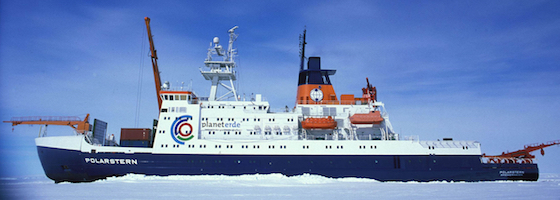New collaborative research expedition on board the RV Polarstern in the Southern Ocean funded

In collaboration with scientists from the Alfred-Wegener Institute (Germany) and the British Antarctic Survey (UK), Christel Hassler received funding to conduct research to improve our “understanding the regional impact of South Georgia islands on Southern Ocean biogeochemistry and ecosystem function”. Funding were granted by the Alfred-Wegener Institute, Helmholtz Zentrum für Polar und Meeresforschung to use the Research Vessel Polarstern.
Project Summary:
The highest concentrations of plankton in the Southern Ocean occur in the Georgia Basin, where dense phytoplankton blooms form annually, north of South Georgia. These substantial algal blooms require a significant iron source for their creation and establishment. The objective of this cruise is to understand the sources and pathways of input of iron and other nutrients and trace metals into South Georgia Island shelf waters, including the impact of injection of these compounds by methane bubble ebullition and groundwater seepage. Seeps, groundwater, runoff and sediments may all play a role here. We then investigate how this local island-derived iron contributes to the downstream biogeochemistry and ecosystem structure at the scale of the entire Georgia Basin. This requires an understanding of physical connectivity between the island system and the Basin (submesoscale and mesoscale), as well as particle dynamics and biogeochemical processes transforming and transporting iron downstream along the Antarctic Circumpolar Current (ACC).
To conduct this research, we have been granted 62 days at sea on board the German Research Vessel Polarstern. This is the largest scientific icebreaker which represents a state of the art floating laboratory. This support corresponds to an in-kind support (boat operating cost and infrastructure) greater than 3 millions euros.
5 juin 2015Actualités 2015
